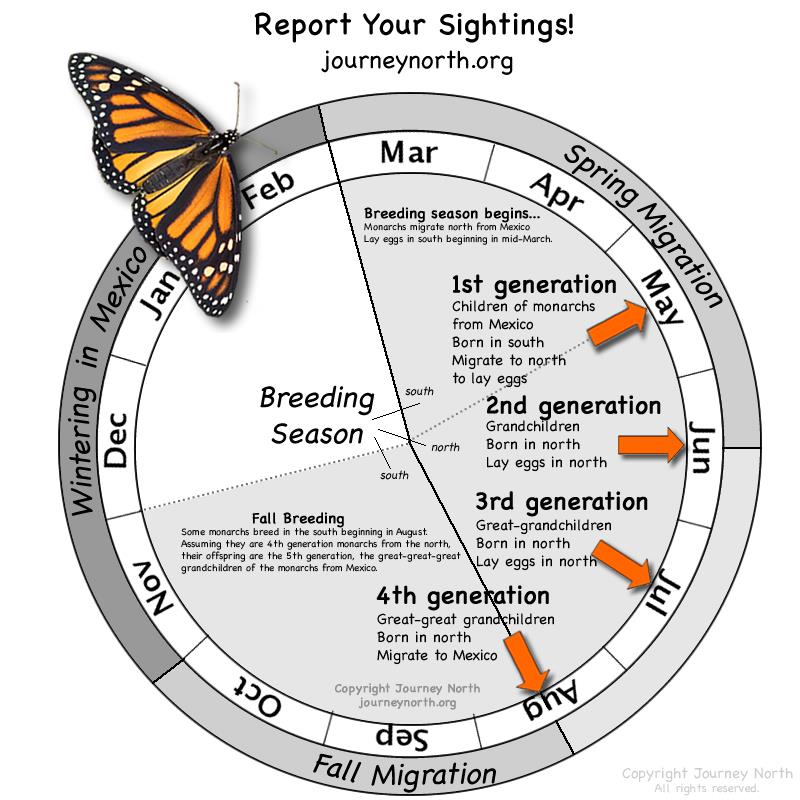The Journey North: Fall Monarch Migration

Tracking Spring and Fall Monarch Migrations
During August, the monarchs emerge and start their migratory journey south. By mid-month, the first members of the migratory generation will emerge in the north. These butterflies are the great-great-grandchildren of the monarchs that left Mexico last spring. They have a long and challenging life ahead: they will migrate to Mexico in the fall, survive the winter, and return in spring to begin the breeding season anew.

PLEASE Report All Sightings
When you see a monarch, Journey North https://journeynorth.org/ wants to know. Please report your observations of monarch adults, eggs, and larvae. Start now — and continue to report until you see your last monarchs of the season.
What to Report
Adult Monarchs
Report all monarchs that you see, even if you don't know whether they are migrating. Report as long as monarchs are present, even into the winter months.
Report all monarchs that you see, even if you don't know whether they are migrating. Report as long as monarchs are present, even into the winter months.
Peak Migration
Report peak migration events. Try to count monarchs regularly so you compare one day to the next and identify the peak. Don't hesitate to report an event as "peak" if you believe it is. We review all sightings and will contact you with questions.
Report peak migration events. Try to count monarchs regularly so you compare one day to the next and identify the peak. Don't hesitate to report an event as "peak" if you believe it is. We review all sightings and will contact you with questions.
Roosting Monarchs
Report night-time roosts. Migrating monarchs cluster together at night, typically in trees. A roost may have a handful of butterflies or far too many to count.
Report night-time roosts. Migrating monarchs cluster together at night, typically in trees. A roost may have a handful of butterflies or far too many to count.
Breeding Monarchs
Report monarch eggs or larvae. These indicate when and where monarchs are breeding in the fall.
Report monarch eggs or larvae. These indicate when and where monarchs are breeding in the fall.
Report Your Sightings
All sightings are included on Journey North's real-time maps. Citizen scientists are making an important contribution to our understanding of monarchs and migration.
All sightings are included on Journey North's real-time maps. Citizen scientists are making an important contribution to our understanding of monarchs and migration.














